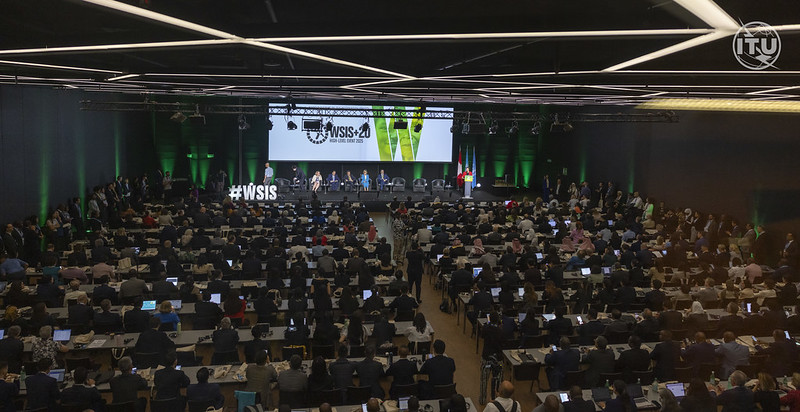At the ITU Plenipotentiary conference in 1998, a proposal was made with the question: what if the world united to shape the future of the Information Society? This question sparked a global journey towards digital cooperation. Endorsed by UN General Assembly Resolution 56/183, the World Summit on the Information Society (WSIS) became a cornerstone of global multistakeholder dialogue. Developing its Declaration of Principles, the WSIS Action Lines and the creation of the Internet Governance Forum (IGF), WSIS laid the groundwork for an ongoing ecosystem of meetings and initiatives. Over the past 20 years, a remarkable set of achievements have shaped the world. Grassroots efforts have helped build Community Networks. Internet Exchange Points (IXPs) have dramatically improved speeds and reduced costs. We have a multilingual Internet through domain names which use non-Latin scripts, the establishment of national and regional forums have empowered local voices to contribute in discussions on digital policies, among many others. These achievements underscore that the Internet’s resilience and openness is a result of sustained and coordinated efforts across borders, sectors and actors.
As we prepare for WSIS+20 in 2025, the United Nations General Assembly will reflect on our progress, assess current gaps and engage a broad range of stakeholders to shape the future of Internet governance in a rapidly transforming digital era.
Therefore we invite papers that explore:
Governance Modalities and Stakeholder Dynamics
We welcome papers that critically examine the evolving architecture of Internet governance, key questions include:
- Modes of Governance and Participation: Analyses of the WSIS+20 Review process, including its modalities, elements and drafts.
- Stakeholder Inclusion and Participation Models: Reviewing how the Global Digital Compact (GDC) and WSIS have approached multistakeholderism, inclusion and diversity in its processes.
- Meta-participation in Digital Governance: Exploring second-order stakeholder engagement – where stakeholders not only participate in processes, but actively shape the process itself
- Norm Development and Frameworks: Studies on the alignment and adoption of the SDGs, Sao Paulo Principles, the GDC Frameworks and ROAM-X as normative anchors.
- Multilateralism and Multistakeholderism: Reviewing the interplay between multilateralism andmultistakeholderism
- Global and regional multistakeholderism: Evaluating tensions, synergies and practical implications in decision-making
Institutional Futures in Internet Governance
We invite contributions that address the evolution and future of key institutions shaping Internet governance:
- Preserving and Evolving the IGF: The future of multistakeholder governance through the IGF and its potentially renewed mandate
- Developing Institutional Architectures: Reevaluating the changing role of different offices such as the UN Tech Envoy’s office/ODET, and proposals for new bodies for future governance.
- Evolving institutions: Reflecting on ICANN’s role in the evolving governance ecosystems and its place in future frameworks.
- Governing Artificial Intelligence: Proposals for new spaces or mechanisms to coordinate global AI governance across stakeholders.
User-centric Perspectives in Internet Governance: Exploring Internet use and its socioeconomic consequences
We invite contributions that are user-centric and/or address topics related to the WSIS Action Lines:
- Digital Inclusion and Equity
- User rights
- Behavioural and psychological impacts
- Economic and labour transformations
- Education
- Cultural and language diversity
- Data sovereignty
- Topics related to the WSIS Action Lines
Submission Guidelines:
Please send through your title and 300 word abstract to Jonathon Hutchinson [[email protected]] and Nadia Tjahja [[email protected]] with the subject line: “Policy & Internet Special Issue” by 2 November 2025.
- Abstracts: up to 300 words
- Abstract deadline: 2 November
- Full papers: 6000-8000 words
- Full paper Deadline: 1 March 2026

